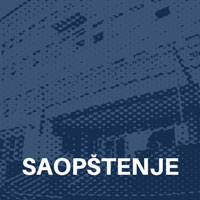On the occasion of the verdict for the murder of prisoner of war Ivan Sivrić in Kožuhe

On October 15, 2020, the Higher Court in Belgrade sentenced Nebojša Stojanović to eight years in prison for the murder of prisoner of war Ivan Sivrić in Kožuhe in May 1992. The Humanitarian Law Center believes that the sentence was fair and appropriate for the gravity of the crime, as well as that this is one of the few war crimes trials that was completed without delay and in a short time.
On July 13, 2018, the Office of the War Crimes Prosecutor filed an indictment against Nebojša Stojanović, a member of a volunteer unit controlled by the Serbian army, for killing the prisoner of war Ivan Sivrić in early May 1992 in the village of Kožuhe (near Doboj, BiH). In the evening hours, Stojanović took Sivrić out of the Energoinvest factory yard, where the latter was imprisoned, and then took him to a place called Djelovačka Bara, near the River Bosna, where he killed him in a previously dug grave, by shooting him twice in the head with a pistol.
On the basis of the testimony of the injured party and witnesses – inhabitants of Kožuhe and Stojanović’s comrades-in-arms -, the court determined that Ivan Sivrić was a prisoner of war from the Croatian army, that Stojanović was in Kožuhe at the time of the killing, and that he had taken Sivrić to a local café a few days before the killing, where he threatened to kill him. Witnesses identified Stojanović by the fact that he had what they called a characteristic “Cherokee” haircut at the time of the killing.
As in other proceedings, during the sentencing the court assessed the fact that Stojanović had not received any previous convictions, as well as his family circumstances, i.e. that Stojanović is the father of children who are still minors, as mitigating circumstances. As aggravating circumstances, the court assessed the gravity of the act and the manner in which it was committed.
The injured party, Ružica Miloš, Ivan Sivrić’s sister, was instructed to obtain compensation in a civil proceeding, because she did not specify this request during the criminal proceeding.
This trial started in February 2019, and, despite the delay in trials on account of the coronavirus pandemic, the year and a half in which the first-instance procedure was completed can be considered indicative of an efficient trial, contrary to previously established practice. Namely, a large number of war crimes proceedings have been ongoing for several years (e.g. Ćuška, Lovas, et al.), during which time the deaths of a certain number of accused have occurred, and also of victims and witnesses.
However, the fact that the injured party was referred to civil proceeding for reparations, since she had not stated the specific amount she was claiming, indicates the lack of adequate support to the injured parties during the procedure. Namely, the obligation of the OWCP, as well as of the Service for Assistance and Support to Victims and Witnesses, is to inform the injured parties not only that they have the right to compensation for damages, but also that they must determine the specific amount of money they wish to claim before the end of the criminal procedure. Owing to the passivity of the competent authorities, the victim is often forced to engage in yet another procedure in order to exercise the right the victim could have exercised during the criminal procedure, which further exhausts and victimises the victim with an otherwise unnecessary retelling of the crime. For this reason, the HLC considers that the OWCP must inform victims of their rights promptly, so that all evidence necessary for the court to decide on a claim for damages during a criminal proceeding is collected; and for the court, whenever possible, to award the victim a fair reparation during the criminal proceeding.






